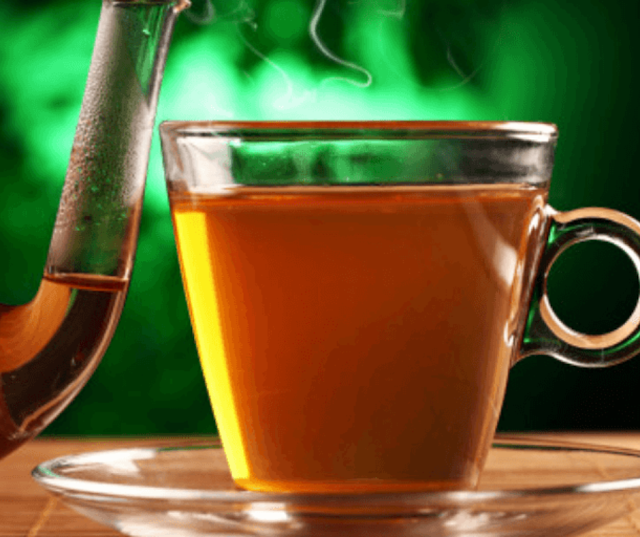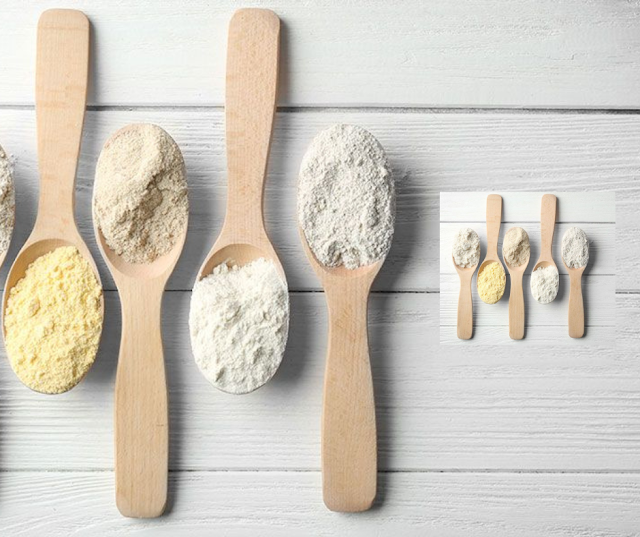What is Refined Wheat Flour and How is it Made?
Refined wheat
flour, also known as all-purpose flour, is a type of flour that is commonly
used in many baked goods and processed foods. It is made from wheat grains that
have undergone a refining process to remove the bran and germ, leaving only the
endosperm.
The process of
making refined wheat flour begins with milling the wheat grains. The grains are
first cleaned and then passed through a series of rollers to break them down
into smaller particles. The resulting mixture is then sifted to separate the
different components of the grain.
During the
sifting process, the bran and germ are removed, leaving behind the endosperm.
This endosperm is then ground into a fine powder, which is the refined wheat
flour that we use in our cooking and baking.
The removal of
the bran and germ during the refining process has a significant impact on the
nutritional content of the flour. These parts of the grain contain important
nutrients such as fiber, vitamins, and minerals, which are lost when they are
removed. As a result, refined wheat flour is less nutritious than whole wheat
flour, which contains all parts of the grain.
Despite its
lower nutritional content, refined wheat flour is a popular choice for many
recipes because it has a finer texture and a longer shelf life than whole wheat
flour. However, it's important to balance the convenience of refined flour with
the nutritional benefits of whole grain flour in a healthy diet.
What is the Nutritional Value of Refined Wheat Flour
Refined wheat flour, also known as all-purpose flour, has a lower nutritional
value compared to whole wheat flour. During the refining process, the bran and
germ are removed, which contain important nutrients such as fiber, vitamins,
and minerals. Here is a breakdown of the nutritional value of refined wheat
flour:
Carbohydrates
Refined wheat flour is high in
carbohydrates, with about 95% of its calories coming from carbs. Carbohydrates
are an important source of energy for the body.
Protein
Refined wheat flour contains about 10%
protein, which is lower than whole wheat flour. However, it still provides some
essential amino acids that are needed for muscle growth and repair.
Fat
Refined wheat flour is low in fat, with only about 1% of
its calories coming from fat.
Fiber
Refined wheat flour is low in fiber, with only about 0.5
grams of fiber per 100 grams. This is because the bran and germ, which are rich
in fiber, are removed during the refining process.
Vitamins and Minerals
Refined wheat flour is often enriched
with vitamins and minerals, such as iron, thiamin, riboflavin, niacin, and
folic acid. This is done to replace some of the nutrients lost during the
refining process.
Overall, while
refined wheat flour provides a good source of energy and some essential
nutrients, it is important to remember that it lacks the fiber and other
beneficial nutrients found in whole wheat flour. For a balanced diet, it's
recommended to consume a variety of whole grains and limit the intake of
refined grains.
Differences Between Refined and Whole
Wheat Flour
Refined wheat
flour and whole wheat flour are two different types of flour that have distinct
differences in terms of their nutritional value and baking properties. Here are
some key differences between refined and whole wheat flour:
Nutritional Value
The most significant difference between
refined and whole wheat flour is their nutritional value. Whole wheat flour
contains all parts of the wheat grain, including the bran and germ, which are
rich in fiber, vitamins, and minerals. In contrast, refined wheat flour has had
the bran and germ removed, resulting in a lower nutritional value.
Fiber Content
Whole wheat flour is high in fiber, with
about 3 grams of fiber per 1/4 cup serving. Refined wheat flour, on the other
hand, has a much lower fiber content, with only about 0.5 grams of fiber per
1/4 cup serving.
Flavor and Texture
Whole wheat flour has a nutty and
slightly sweet flavor, while refined wheat flour has a milder taste. Whole
wheat flour also has a coarser texture, which can affect the texture of baked
goods. Refined wheat flour has a finer texture, which can make baked goods
lighter and fluffier.
Baking Properties
Because of their differences in texture
and nutritional value, refined and whole wheat flour can behave differently
when used in baking. Whole wheat flour is more absorbent than refined flour and
requires more liquid in recipes. It can also produce denser and heavier baked
goods. Refined flour, on the other hand, produces lighter and fluffier baked
goods.
Overall, whole
wheat flour is a more nutritious option, while refined flour is a good option
for lighter and fluffier baked goods. However, it's important to remember that
both types of flour can be part of a balanced diet, and it's recommended to
consume a variety of whole grains and limit the intake of refined grains.
Processing Methods and Nutrient Loss in
Refined Wheat Flour
Refined wheat
flour, also known as white flour, undergoes several processing methods that can
result in significant nutrient loss. Here are the common processing methods
used in producing refined wheat flour and how they affect the nutritional
value:
Milling
The first step in producing refined
wheat flour is milling. During this process, the outer layers of the wheat kernel,
including the bran and germ, are removed, leaving only the endosperm. This
removes important nutrients like fiber, vitamins, and minerals.
Bleaching
Some refined wheat flour undergoes
bleaching to make it whiter and more attractive. This process involves the use
of chemicals such as chlorine gas or benzoyl peroxide. Bleaching can damage
nutrients and create harmful byproducts, making it an undesirable process for
producing food.
Enrichment
After milling, the remaining endosperm
is often enriched with nutrients such as iron, thiamin, riboflavin, niacin, and
folic acid to replace some of the nutrients lost during processing. However,
enrichment does not replace all of the nutrients that were removed, and it is
not as beneficial as consuming whole grains.
Aging
Refined wheat flour is often aged to improve its baking
properties. However, aging can lead to further nutrient loss. The flour is
exposed to oxygen during this process, which can cause vitamins and minerals to
break down.
Overall, the
processing methods used in producing refined wheat flour result in significant
nutrient loss. Whole wheat flour, which contains all parts of the wheat kernel,
including the bran and germ, is a more nutritious option. It provides more
fiber, vitamins, and minerals than refined wheat flour, and it is also less
processed. For better health, it is recommended to choose whole grain products
over refined products.
Health Implications of Consuming Refined
Wheat Flour
Consuming
refined wheat flour, especially in large quantities, can have several negative
health implications. Here are some of the potential health risks associated
with consuming refined wheat flour:
Nutrient Deficiencies
Refined wheat flour is stripped of its
bran and germ, which are rich in fiber, vitamins, and minerals. As a result,
consuming too much-refined wheat flour can lead to nutrient deficiencies, such
as iron, thiamin, and folate.
Blood Sugar Spikes
Refined wheat flour is a high glycemic
index food, meaning it can cause blood sugar levels to spike quickly. This can
lead to insulin resistance and type 2 diabetes over time.
Digestive Problems
The lack of fiber in refined wheat flour
can lead to digestive problems, such as constipation, bloating, and abdominal
discomfort.
Weight Gain
Refined wheat flour is calorie-dense and
lacks the fiber that helps regulate appetite. Overconsumption of refined wheat
flour products can lead to weight gain and obesity.
Inflammation
Refined wheat flour has a high omega-6
to omega-3 ratio, which can contribute to chronic inflammation. Inflammation is
linked to several chronic diseases, including heart disease and cancer.
Increased Risk of Heart Disease
Refined wheat flour products are often
high in added sugars and unhealthy fats, which can contribute to an increased
risk of heart disease.
Overall,
consuming too much-refined wheat flour can have negative health implications.
It's important to include a variety of whole grains in your diet, such as brown
rice, quinoa, and whole wheat, to ensure you're getting the fiber, vitamins,
and minerals your body needs.
Alternatives to Refined Wheat Flour for a
Healthier Diet
If you want to
avoid the potential health risks associated with consuming refined wheat flour,
there are several alternatives you can try:
Whole Wheat Flour
Whole wheat flour is made from the
entire wheat kernel, including the bran and germ, making it a healthier alternative to refined wheat flour. It contains more fiber, vitamins, and
minerals than refined wheat flour.
Almond Flour
Almond flour is made from ground almonds
and is a great gluten-free alternative to wheat flour. It's high in protein,
healthy fats, and fiber, making it a great choice for baking.
Coconut Flour
Coconut flour is gluten-free flour made
from ground coconut meat. It's high in fiber, protein, and healthy fats and has
a slightly sweet taste.
Quinoa Flour
Quinoa flour is made from ground quinoa
seeds and is gluten-free. It's high in protein, fiber, and several vitamins and
minerals, making it a nutritious alternative to wheat flour.
Buckwheat Flour
Buckwheat flour is a gluten-free flour
made from ground buckwheat groats. It's high in fiber, protein, and several
vitamins and minerals, making it a nutritious alternative to wheat flour.
Spelt Flour
Spelled flour is made from spelled, an
ancient grain related to wheat. It contains gluten but is easier to digest than
wheat flour. It's high in protein, fiber, and several vitamins and minerals.
Overall, there
are many alternatives to refined wheat flour that you can use to create
healthier, more nutritious meals. By incorporating a variety of whole grains
and gluten-free flours into your diet, you can provide your body with the
nutrients it needs while avoiding the potential health risks associated with
consuming too much-refined wheat flour.
Balancing Taste and Nutrition in Choosing Flour
In conclusion,
choosing the right flour for your baking and cooking needs requires a balance
between taste and nutrition. While refined wheat flour may be a popular choice
for its smooth texture and neutral flavor, it lacks the fiber, vitamins, and
minerals found in whole-grain flours. Consuming too much-refined wheat flour
can lead to several negative health implications, including nutrient deficiencies,
blood sugar spikes, digestive problems, weight gain, inflammation, and an increased
risk of heart disease.
To make
healthier choices, consider incorporating a variety of whole-grain flours and
gluten-free flours into your diet. These alternatives can provide a range of
flavors and textures while delivering essential nutrients. Additionally, you
can experiment with alternative sweeteners like honey, maple syrup, or fruit
puree to reduce added sugars in your baking.
In short,
finding a balance between taste and nutrition requires a bit of experimentation
and creativity. By being mindful of your choices and considering the
nutritional benefits of different flours, you can enjoy delicious and
nutritious baked goods while supporting your overall health and well-being.
There are many wheat flour suppliers in India, as it is a staple food in the country. Some of the well-known wheat flour suppliers in India are:
Aashirvaad: Aashirvaad is a popular brand of wheat flour in India, and it is manufactured by ITC Limited.
Pillsbury: Pillsbury is another popular brand of wheat flour in India, and it is manufactured by General Mills India Private Limited.
Patanjali: Patanjali is a brand of wheat flour that is manufactured by Patanjali Ayurved Limited.
Annapurna: Annapurna is a brand of wheat flour that is manufactured by Hindustan Unilever Limited.
Dekentmerchandise: Dekentmerchandise is a merchant exporter from delhi, India a brand of wheat flour that is manufactured by Cargill India Private Limited.
These are just a few examples of the many wheat flour suppliers in India. You can find many more suppliers by searching online or visiting local grocery stores.

















